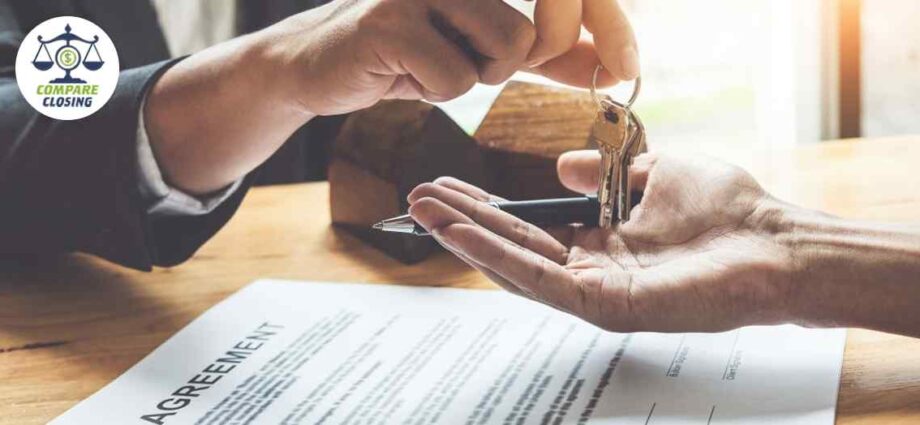Warning: Undefined variable $custom_content in /home4/comcompare/public_html/mortgagenews/wp-content/plugins/code-snippets/php/snippet-ops.php(582) : eval()'d code on line 7
Last updated on February 3rd, 2021 at 11:01 am
If you are wondering how long after appraisal does it take to close on a house loan? Many 1st time homebuyers have this question.
It takes 47 days to close on a home on an average, and typically, closing occurs around two weeks after the appraisal is completed.
However, there’s a lot more to the process than just the average numbers. Here is the entire mortgage timeline for you so you can have a better idea of the mortgage process.
The majority of mortgages will take between 30 and 60 days to close, the data suggests you may not even have to wait that long.
According to Ellie Mae’s report in July 2020, it took buyers an average of 47 days to close on a loan. Every closing has a unique set of circumstances that need to be met, so your closing may take a shorter or longer time.
According to the report, the average time to close depended on loan type. FHA loans were able to close in an average of 46 days, while a VA loan takes, about 49 days to close.
Assuming that you’ve already found your new home and having a purchase contract in hand, submitting your mortgage application is the first step in applying for a loan where the lender asks you some questions about the property and your financial history which could take less than an hour.
Then the lender takes 3 days to provide you with an estimate of all the costs associated with the loan.
Particularly, information about your monthly payment amount, your interest rate, and the closing costs that you’ll be expected to pay.
If those figures are satisfactory to you, your application will be submitted, and you’ll move on to loan processing.
Loan processing is essentially a step that’s meant to help get your file ready to go to underwriting.
The objective is to gather all the necessary documentation needed to verify the information you provided on your mortgage application.
The documentation everyone will be asked for is unique, however in general, you can expect to provide pay stubs, tax returns, and proof of homeowners insurance, among other things.
Your loan officer will give you a list of documentation, which you will need to provide before you can move on to receiving final loan approval.
If you’re missing financial documentation, try to collect it as quickly as possible. The quicker you get the information to the loan processor, the faster you’ll be able to move on.
While you’re working with the loan processor, your lender will also order an appraisal, which is the process of determining the fair market value of the home.
Often, mortgage companies require a satisfactory appraised value to ensure neither you nor they are paying too much money for the property.
While there are different methods, depending on the type of property you’re purchasing, most likely an appraiser will use similar, recently sold properties in your area to determine the appraised value of your home.
In this case, the appraiser will literally see how the home stacks up to the competition to assign it a value.
The appraisal process may vary depending on the type of loan you receive. Some appraisers have a strict list of requirements that must be met.
Once your loan officer determines your file is complete, it will move on to underwriting, where you’ll hopefully be given loan approval.
An underwriter will verify that the financial information you submitted is correct as well as look at the specifics of your financial situation to determine the risk level associated with approving you for a loan.
If your financial history is good, this process will likely go quicker. However, if you have a more unconventional financial background, it may take a little longer.
You may also receive what’s known as a “conditional loan approval” before receiving your final approval, where you’ll need to submit more documentation or clarify some information for the underwriter before they will give you the clearance to close.
However, once you receive this approval, you’ll know you’ve officially been approved for a home loan.
Three days before your closing date you will receive your closing disclosure. This document is similar to your loan estimate except that it provides you with final figures about the cost of your home loan.
Specifically, it will show you what your monthly payment amount will be, your interest rate, and the closing costs.
So you have three days before closing to review and compare your loan estimate. If you have questions about it, now is the time to ask your mortgage lender rather than waiting until you arrive at the closing table.
To ensure that your home loan process takes place as smoothly as possible:
- Have all your financial documentation ready: So it would be helpful to collect your financial information as quickly as possible. You may want to take some time and organize your financial paperwork even before you apply for a loan.
- Respond to requests quickly: During the mortgage process, your loan officer may ask you for clarification or additional documentation beyond what you’ve already submitted. It’s in your best interest to respond to these requests quickly.
- Be open to negotiation: You may need to renegotiate the home’s purchase price after an appraisal if the home value comes back lower than expected.
Reference Source: Millionacres


